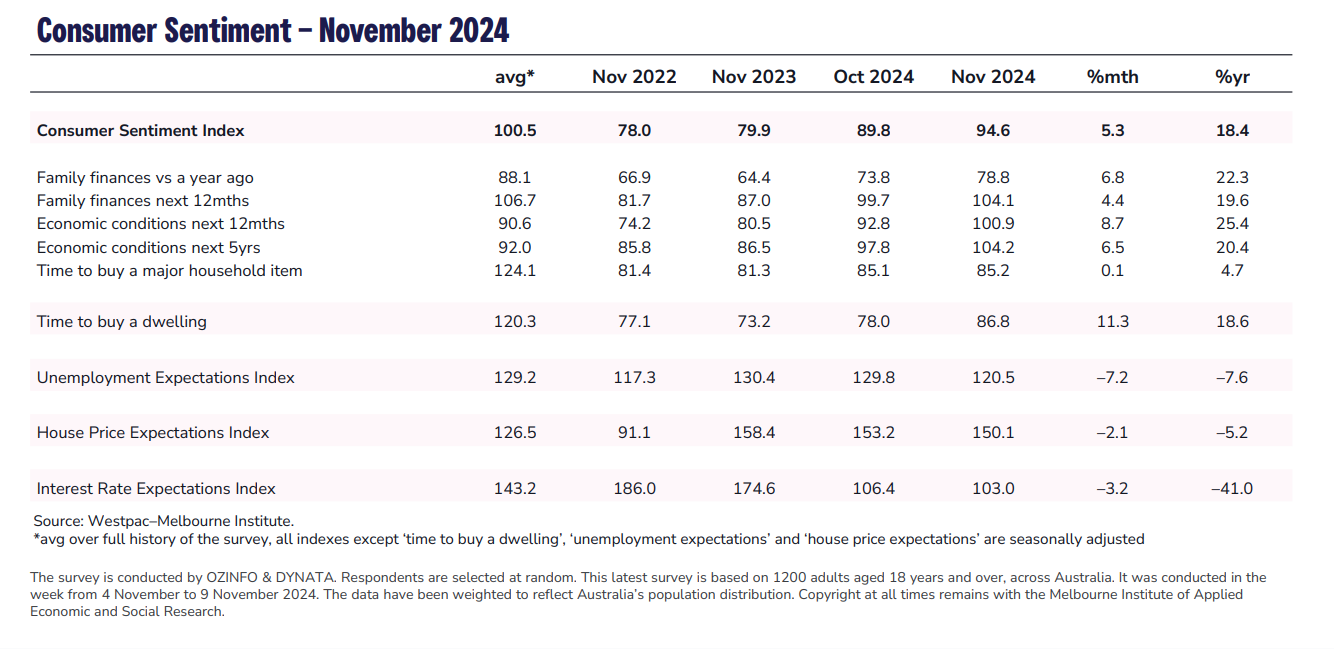

The Westpac–Melbourne Institute Consumer Sentiment Index rose 5.3% in November, reaching 94.6, its highest level in months.
While consumer confidence continues to strengthen, Westpac’s head of Australian macro-forecasting, Matthew Hassan (pictured above), noted that some areas remain uncertain, especially following recent global events.
“The index is now up 14.4% from its mid-year lows, with consumers reporting some relief in financial pressures and increased optimism for the economy,” Hassan said.

The survey, conducted in the week ending Nov. 9, captured reactions to both the Reserve Bank’s rate decision and the US election.
Consumer sentiment was high before the RBA announcement, remained steady after, but dipped significantly after the US election results, showing a degree of volatility in response to global events.
Sentiment around Christmas spending showed positive shifts, with only 35% of consumers planning to cut back on holiday spending – an improvement over last year’s 40%. Although cautious, consumers are feeling slightly more optimistic about their finances, especially for the coming year.
The Westpac–Melbourne Institute Consumer Sentiment Index’s sub-components revealed growing optimism about finances, with the “economic outlook, next 12 months” index jumping 8.7% to 100.9 and “family finances, next 12 months” up 4.4% to 104.1.
Middle-income earners and consumers aged 55-64 reported particularly positive changes, though many Australians remain cautious due to ongoing financial pressures.
The “time to buy a major household item” index showed limited growth at 85.2, far below its historical average. This suggests that while inflation is slowing, consumers are still hesitant about large purchases due to lingering cost-of-living pressures.
Consumer confidence in the job market strengthened, with the unemployment expectations index dropping 7.2%, the best read since April of last year.
Additionally, housing sentiment rose as the "time to buy a dwelling" index increased 11.3%, driven by improved confidence in Victoria.
The mortgage rate expectations Index also declined, with just more than half of consumers expecting mortgage rates to hold steady or decrease in the next year.
This reflects optimism regarding inflation trends, which could allow the Reserve Bank to ease monetary policy in the coming year if inflation continues to stabilise.
Get the hottest and freshest mortgage news delivered right into your inbox. Subscribe now to our FREE daily newsletter.
